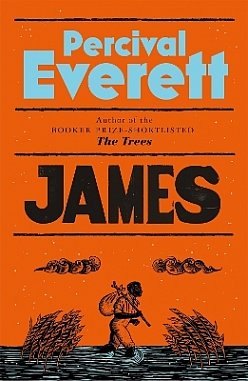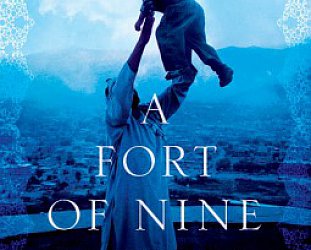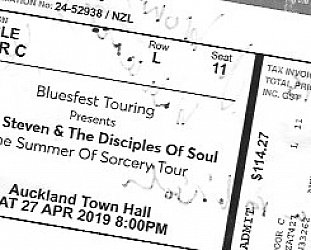Graham Reid | | 2 min read

If this provocative, award-winning novel were ever adapted for film the temptation for the soundtrack composer would be, when we reach the final significant words, to deliver a swell of emotional, uplifting orchestration as if redemption had been delivered.
That would be wrong.
This version of aspects of Mark Twain's novel The Adventures of Huckleberry Finn are seen through the eyes of the slave Jim and needs no such inappropriate emotional tug.
The ending comes as a natural consequence of all that has preceded it, and none of it romantic or uplifting. Not even the ending.
Re-imagining Jim as an intellectual (he can read, is well spoken) who is forced to adopt the language and servile behaviour of a slave for survival in the South, the author allows his character to observe and comment on the attitudes of whites of all classes towards their black servants, even those whites in equal poverty yet believing they are still a superior race.
Jim pretends to be fearful, superstitious, simple, child-like and every other cliché and characteristic the whites have imposed on their slaves.
The young Huck is an interesting character, repeatedly troubled by this cultural divide and why his friend Jim should be on the bottom of the ladder. Not that he is in any position to do anything about it. Not until he has a choice to make.
And he has no idea just how intelligent the self-educated Jim is, such is the manner in which Jim carries himself.
In Jim's dirt-floor cabin he gives lessons to the children on how to speak in the servile, “yessum ma'am” manner to help them travel through this divided world: “White folks expect us to sound a certain way and it can only help if we don't disappoint them,” he says. “The only ones who suffer when they are made to feel inferior is us.”
He reviews the basics and the children respond: don't make eye contact, never speak first, never address any subject directly when talking to another slave . . .
There is an example: Walking down the street you see a fire in Mrs Holiday's kitchen, what do you do?
Shout “fire, fire”?
Almost correct.
“We must let the whites be the ones who name the trouble . . . because they need to know everything before us.”
So the correct response to the fire is, “Lawdy missum! Looky dere.”
Loosely following some of Twain's narrative, we see Jim (often in the company of Huck) on the run through the South as the country is pulling itself apart over the issue of slavery.
Author Everett – who wrote Erasure which was adapted for the screen as American Fiction and traverses some similar territory of white expectations of black culture – let's the injustices slip through with equal measures of humour and genuine danger.
Jim is a fugitive in a world out to get him for who is, let alone what his crime might have been. That is incidental in many ways, this is a world of the whip and the noose.
The premise is deceptively simple, the rewriting of The Adventures of Huckleberry Finn, but where Jim in the original is little more than a cipher and progressively reduced as the book progresses, here he is central and grows in the telling.
This is subversive and if in places Jim's observations seem pedantic, then when confronted with the life or death world he is in, the comments take on deeper shape.
The final third ratchets up the tension and moral dilemmas for Huck who knows Jim is a runaway slave, but also his friend.
A wonderful, remarkably easy to read book with chilling resonances in every short chapter which invite readers to question the present as much as the past.
There are no clouds of romantic orchestration when the final lines are delivered.
JAMES by PERCIVAL EVERETT Pan McMillan $38





post a comment